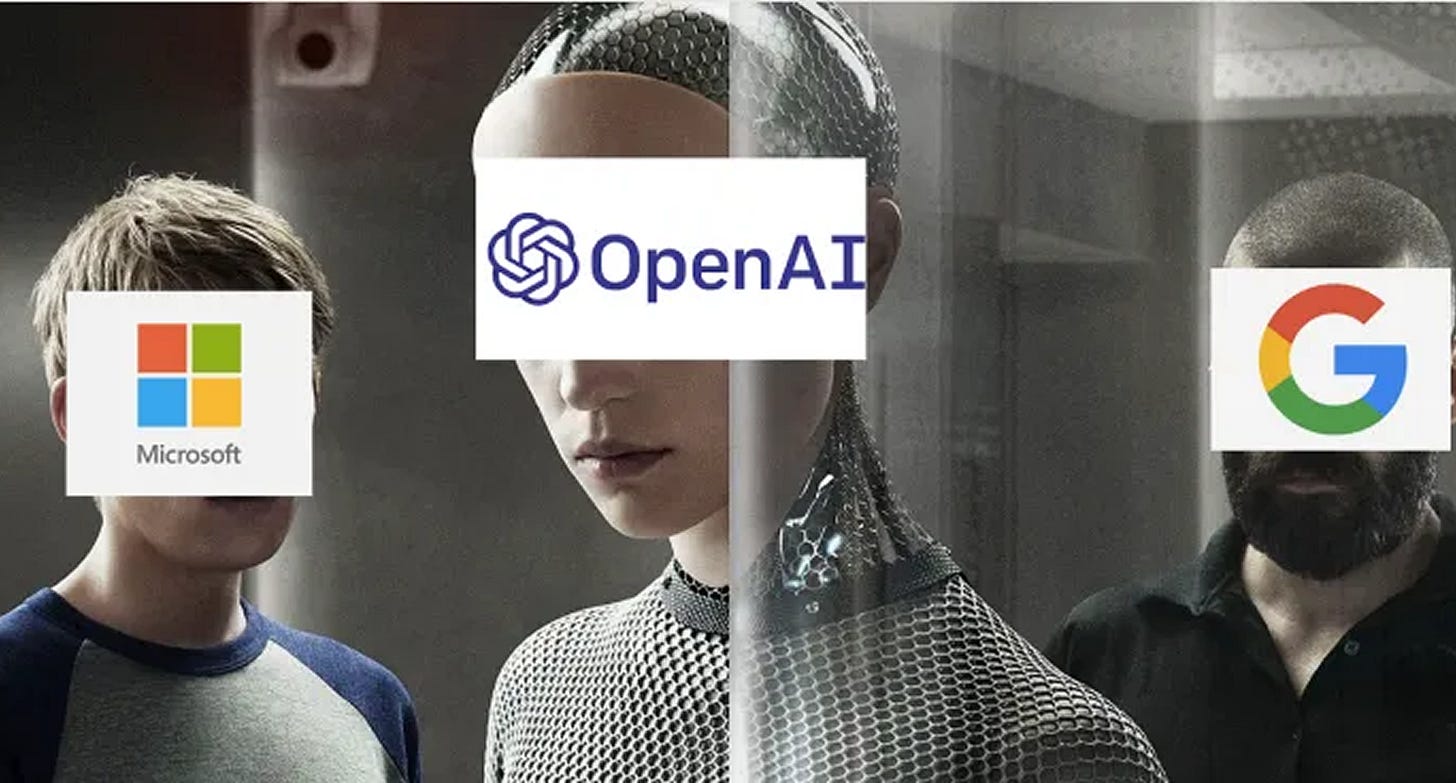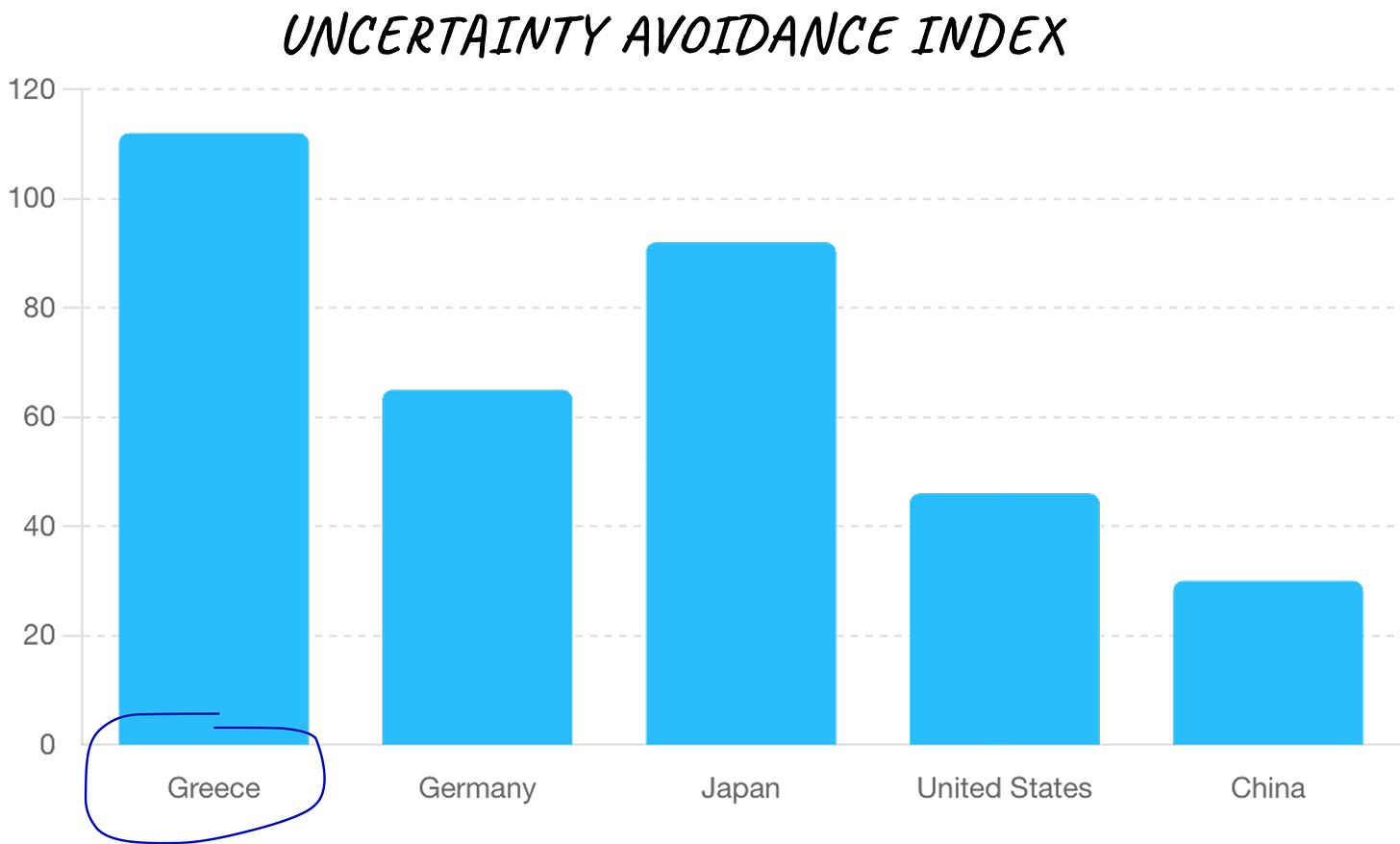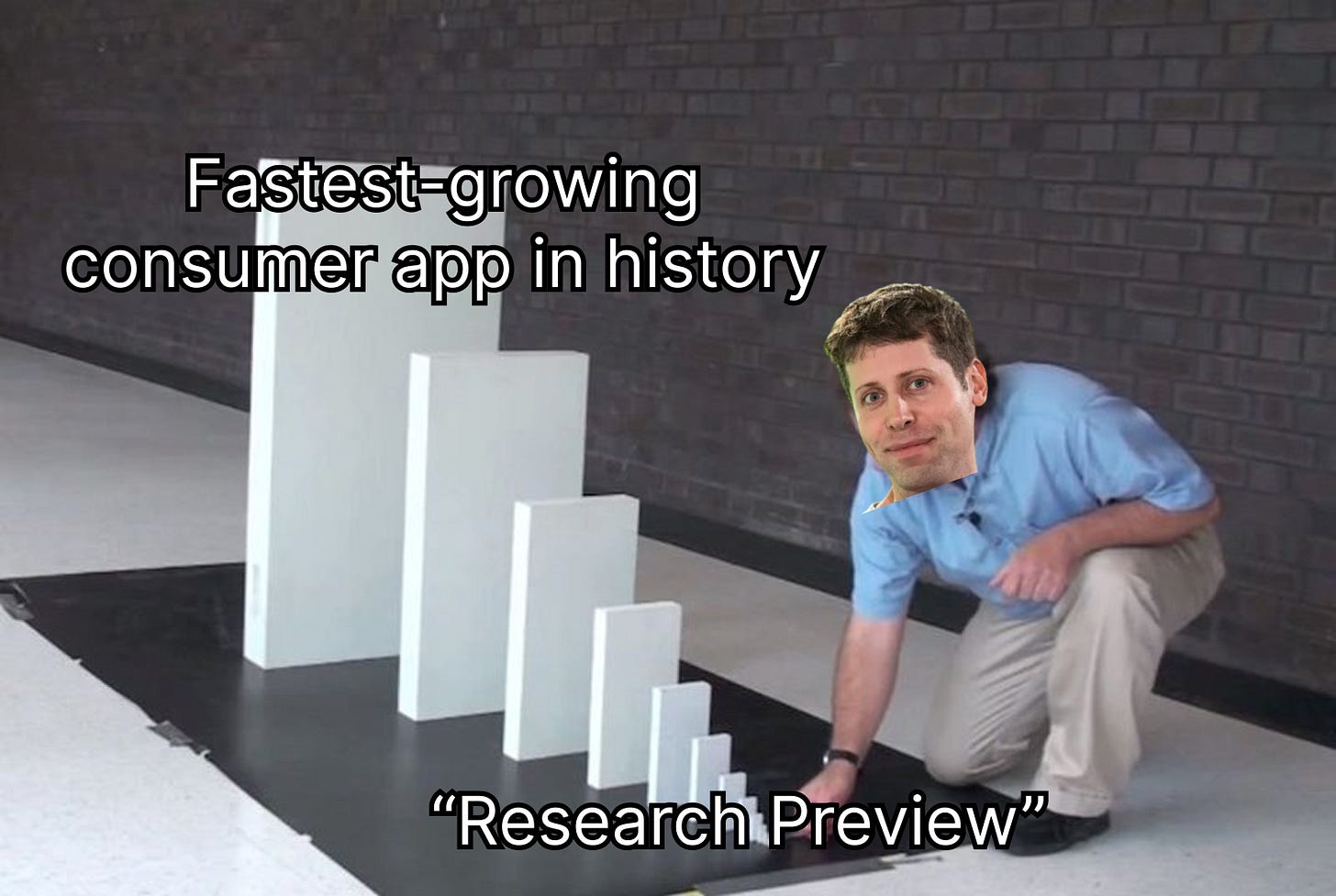Embracing Uncertainty
Uncertainty as the moat
This is Startup Pirate #121, a newsletter about technology, entrepreneurship, and startups every two weeks. Made in Greece. If you’re not a subscriber, hit the button below and come aboard:
Embracing Uncertainty
Uncertainty is everywhere in startups: people, technology, product, market. But this isn't just a nuisance founders can't avoid. It's essential to startup success. Initially lacking traditional competitive advantages like scale or brand, startups rely on uncertainty as a protection against incumbents and new entrants. Uncertainty becomes their initial moat.
It's 2017. Google dominates search: billions log on, type what they want, and advertisers pay top dollar to capture that intent. Holding ~90% of global search, Google rakes in more ad revenue than any company on earth.
In June that year, a landmark research paper in machine learning titled "Attention Is All You Need" is published by eight scientists working at Google. The paper introduces a new deep learning architecture known as the transformer, foreseeing the technique's potential for tasks such as question answering.
An AI startup founded two years earlier was quick to pounce. OpenAI relentlessly scaled this new architecture to build large language models like GPT-1 and its successors, leading them to one of the most successful commercial products in history. ChatGPT currently makes $415 million in revenue per month. Although Google saw this new technology first, it was a startup that capitalised on it to build the future of productivity.
Did Google simply just miss it?

While the technology deserves the praise it receives, its translation into a juggernaut business was far from certain until millions of people rushed to use its new consumer-friendly interface. In the higher echelons of Google, the project was seen as just another interesting AI project. Google found it advantageous to let others lead. As CEO Sundar Pichai explained: "It's not fully clear to me that it might have worked out as well. The fact is, we can do more after people had seen how it works".
There was… uncertainty.
Large hierarchical organisations prefer to wait for more proof to become available rather than face uncertainty. The tension between where decisions are made and where accountability is held pushes them to require data and rational explanations to approve actions: investment memos, financial models, discounted cash flow models, etc. How can you plan for something fundamentally uncertain? Most will ignore or quash it internally. This doesn't mean established companies never pursue highly uncertain projects, but they are far less likely to do so.
Many entrepreneurs find themselves in a similar position: dealing with significant uncertainties. Nevertheless, without a boss asking for rational explanations, they can go ahead anyway. The entrepreneur may decide to act, unlike the boss, because the entrepreneur doesn’t need to explain themselves to anyone.
The startup doesn't need to be the first to ever do what they're doing; OpenAI was not the first to experiment with transformers, nor was it the first to create a search platform. But either the category must be new enough that no company already dominates, or its product must be significantly better to grab market share from incumbents.
This doesn't mean everything about startups is uncertain. However, it's the nature of high-growth technology businesses that the most important value creation drivers must be uncertain. Until a moat is in place, only uncertainty will deter competitors, leaving enough odds for the handful that enter to succeed. Startups must choose to embrace uncertainty because most companies, particularly established ones, won't. Of course, these can't really be intractable problems because startups succeed in solving them every day.
Where cheap cash and startup playbooks have led to incrementalism and many talented people iterating on a tiny product surface area (and don't get me wrong, this can still yield success given how large tech has become), embracing uncertainty acts as a beacon of differentiation. We're always so biased trying to put things in a category, and not to think about what's unique, what's original, what's different. If it's already in YC's Requests for Startups, it's a little too late.
This brings me to another point... Differentiated startups, startups which use uncertainty as a moat, are the ideal vehicle for raising a community's tolerance for uncertainty. Everyone (entrepreneurs, employees, VCs, and the community at large) gets a crash course on ambition, risk-taking, and managing uncertainty.
I recently heard Vangelis Mihalopoulos, Yodeck's CEO, saying: "We had examples in our network, like Bugsense and Epignosis, that built global B2B SaaS products from Greece. If they could do it, why not us?". We connect most with people who walked the same school halls, grew up down the same streets, or speak the same language. The next generation of Greek founders will look up to Augmenta, Hack The Box, Delian, and others building where most see uncertainty.
It's 2016. Long before ESG turns into a buzzword, two engineers/farmers straight out of university in the small city of Volos, Dimitris Evangelopoulos and George Varvarelis, start retrofitting hardware and software in tractors to help fellow farmers increase their yield and minimise fertilisers. Their technology becomes used across thousands of acres globally and, via the acquisition of Augmenta <> CNH, is now an integral part of new tractors from the world's second-largest agricultural equipment company.
It's 2017. While hackers still learn how to hack through textbooks and assessed via multiple-choice Q&A, Haris Pylarinos starts a side project (initially named in Greek "χάκαρε το κουτί"), an online learning platform for cybersecurity enthusiasts with social features built in. Nine years later, Hack The Box is used by 2.7 million hackers and the largest organisations globally.
It's 2020. Dimitrios Kottas, an engineer at Apple in California, returns to Greece to build Europe's modern defense prime. This is long before ReArm Europe, the war in Ukraine, and the recent defense tech hype. Today, they have created a globally competitive autonomous anti-access/area denial solution that's orders of magnitude more cost-effective and scalable than legacy systems. See their recent video below:
Embracing uncertainty is primarily a cultural phenomenon, and Greece, shaped by its turbulent past, has become allergic to ambiguity.

But it hasn’t always been like that. I wrote about counterexamples in the "We need to 10x the entrepreneurs", like the shipping DNA on the island of Chios, where life (and risk) at sea is honoured and celebrated.
The collective change will start with those who ignore the mimetic warfare of the Gartner quadrant, the VC theses and startup requests, and think about what's unique, what's original, what's different. With uncertainty comes volatility, simultaneously enabling outsized success and idiosyncratic risk.
We only need a handful of shots on goal for the vibe shift to begin.
Jobs
Here’s the list of startup jobs in Greece
News
This is a jaw-dropping Seed round for benchmarking for LLMs, LMArena. They raised $100m Seed by a16z, Lightspeed, Kleiner Perkins, and more.
Plenty are going after the “rebuild the CFO suite” vision, yet Rillet seems to be doing something right. They claim 5x YoY revenue growth for their AI-native ERP and just raised $25m in Series A by Sequoia.
Color-changing nanomaterials Quantum Light secured $1m Pre Seed to build the future of pigments and dyes.
Athens-based maritime workflow solutions CompassAir was acquired by Insight Partners-backed Sedna.
Next-gen surgical patch Veltist raised €160k to eliminate a major surgical complication responsible for thousands of deaths each year.
8 weeks incubation program Astylab Founders is accepting applications.
Athens is a Rising Star tech hub in Europe according to Dealroom.
Kos Biotechnology Partners, a new biotech fund is launching soon.
Satellites made in Greece by ICEYE.
Resources
Recording from the latest Open Coffee in Athens with the founders of LearnWorlds, ORamaVR, and Biological Lattice Industries.
Building the world leader in online corporate learning with Thanos Papangelis and Dimitris Tsingos, founders of Epignosis.
2025 HR and salary trends by Randstad.
Building a car rentals marketplace with Nikos Drandakis, founder of Sync.
Nuclear energy and the case of Greece with Achilleas Chekimoglou, author of the book “Atomic Era: Nuclear Energy, Reactors, and Uranium in Greece in the 20th Century”.
Promotion rejections, performance improvement plans, and other dreaded conversations by Christos Chatzis, Sr Technology Manager at Kaizen Gaming.
Events
Join us for a special Open Coffee Athens #124 on Jun 19 with Anastasis Germanidis, co-founder of Runway.
Sui under the hood part 2 by Sui Community on Jun 6.
Greeking Out in Paris by Endeavor on Jun 10.
Patras Tech Talk 2025.06 [Summer edition] on Jun 11.
Serverless Edition by AWS User Group Athens on Jun 12.
Structured Concurrency, concepts and applications by foobar io on Jun 17.
AI Meetup Athens by Starttech Ventures on Jun 18.
Tech Tour Investors Summit 2025 on Jun 19 - 20.
1st International Humanoid Olympiad by Acumino & Endeavor on Aug 29 - Sep 2.
That’s all for this week. A lineup of special guests is coming up in the newsletter:
Human or bot? w/ Anastasios Andronidis (World)
Accelerating AI w/ Polychronis Xekalakis (Nvidia)
See you in two weeks.
Find me on LinkedIn or X. Thank you for reading.
Alex


